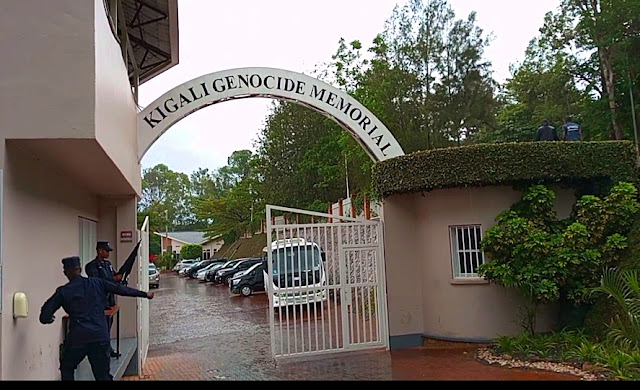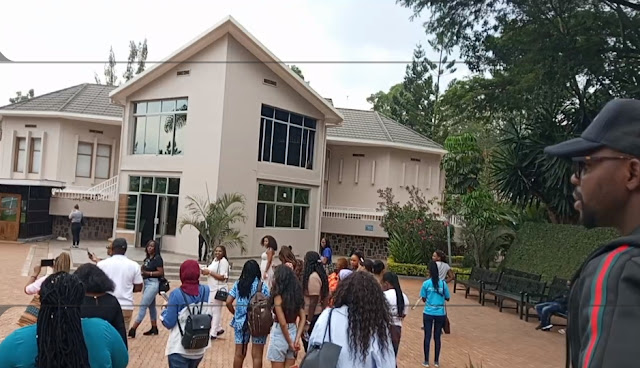Kigali Genocide Memorial - a place of remembrance and learning
Ladies and gentlemen,
Welcome to our platform. Our program for today leads us to reflect on the Kigali Genocide Memorial.
Our visit to the Kigali Genocide Memorial - A place for learning
“For the international community, the Kigali Genocide Memorial is a crucial place to see when they visit Rwanda,” says Gatera. “If you come to Rwanda to travel through the ‘land of a thousand hills’, explore the beauty of our nation and meet its people, it is important to understand where they are coming from. If you don’t understand the genocide then you won’t understand the population.”
The Kigali Genocide Memorial museum includes three permanent exhibitions, the largest documents the 1994 genocide against the Tutsi. There is also a children’s memorial, dedicated to the children who were killed during the genocide and an exhibition on the history of genocidal violence around the world. “This part of the exhibition shows that this kind of tragedy is not a phenomenon only in Rwanda.” It is an international issue – and this is a place for humanity to think deeply about who we are as human beings.
Nobody remained indifferent after visiting the children's room people left in tears, we learned each child’s favourite foods and activities. It was like viewing a family album — except it abruptly ends with how the youngster’s life was violently snuffed out.Surrounding the center are peaceful gardens for quiet reflection, created as if the developers knew visitors would need to recompose themselves after such a core-rattling experience.
We inhaled and exhaled with intention and a sense of relief until we came upon the tombs. Covered by giant plates of concrete, mass graves for over 250,000 victims serves as a place for visitors to honor those lost, and for the loved ones of the victims to grieve and remember.
The history
In 1994, the devastating mass slaughter of the Tutsi people of Rwanda took place. The Rwandan Genocide lasted from 7 April to mid-July, and more than 1 million Tutsis were killed, many of them in their own towns by neighbors and fellow villagers.
“The genocide against the Tutsi was an effect of the seeds of hatred sown in colonial times and the three decades that Rwanda was under very oppressive leadership,” says Honoré Gatera, Director of the Kigali Genocide Memorial. “There was an ideology of hatred spread against the Tutsis, and people were learning to hate rather than to love one another. If you teach people this hatred, this is the result.”
In 2001, in collaboration with Rwanda’s National Commission for the Fight Against Genocide (CNLG), the Aegis Trust raised the $2 million required to build the Kigali Genocide Memorial. The center was officially opened on 7 April 2004 to mark the tenth commemoration of the 1994 genocide against the Tutsi in Rwanda. The memorial is the final resting place for up to 259,000 victims of the genocide and serves as a place where people can grieve for their lost loved ones and remember them. It also serves as a museum where both local and international visitors can learn about the history, implementation and consequences of the genocide.

















No comments:
Post a Comment
Note: only a member of this blog may post a comment.